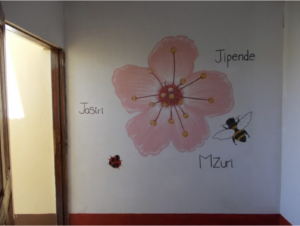Menstruation
As a medical communications agency, we focus on working in partnership with our clients to create accurate and engaging materials, designed specifically for their intended audience. We believe education is a powerful tool. It has the ability to change lives and empower individuals by providing the information needed to make balanced judgements.
In the fifth blog of her series, Kate Flanagan discusses the topic of menstruation, and the impact it has on the female population of Msunjilile, Tanzania.
Kate and the other Raleigh volunteers took this opportunity to work with the people of Msunjilile to provide targeted and engaging education for the children on menstruation, as part of their water, sanitation and hygiene project.
We hope you will be as impressed as we were, by the team’s drive and determination to help enhance understanding, break down taboos and provide the opportunity for empowerment.
If you have any comments on these blogs, please contact us. We would love to hear your thoughts.
For millions of women and girls worldwide, menstruation is a frustrating and often painful monthly reality. Yet for those who lack fundamental access to adequate menstrual hygiene, it becomes an issue of health, sanitation, education, gender equality and poverty.
Menstruation, in many countries across the world, is still shrouded by taboos and stigma. For example, in Tanzania, it is sometimes relayed that a girl on her period can cause a green plant to turn brown, just by touching it.
During our project, we discovered that Igubi, a local training in Msunjilile, keeps girls at home when they start their periods. Alongside this was a widespread belief in witches who could curse used sanitary products and render a girl infertile. This belief meant that many school girls, often based on the wishes of their parents, would only dispose of sanitary materials privately at home, meaning they would have to carry used products with them all day or avoid school altogether. Even those who did not subscribe to such a belief would still be hindered by the lack of disposal facilities for sanitary products within the existing school toilets. This practice furthers long-term gender inequality by reducing equal access to opportunity and employment.
One way to improve the health and development of girls is to focus upon water and sanitation at schools. As part of our three-month water, sanitation and hygiene (WASH) project we constructed a menstrual hygiene management (MHM) room within the new female toilet block. A hand-painted mural creates a welcoming environment and in stark contrast to the old facilities, this room offers the privacy of a lockable door, a bin for sanitary product disposal, a ceramic drop-hole toilet and water for washing. By providing a safe and private space, girls will hopefully be encouraged to remain at school while on their periods.
Alongside the construction of the room itself, we delivered lessons to both girls and boys with enthusiastic teacher and parental permission. Boys were delivered lessons on both male and female puberty, menstruation, gender equality and domestic duties. Girls were taught the menstrual cycle, usage and disposal of sanitary materials and general menstrual hygiene. This essential education will hopefully ensure the proper use and maintenance of the MHM room in its attempts to counter existing beliefs and myths, especially with regards to sanitary product disposal. The lessons were designed to enhance understanding and naturalise menstruation, to ultimately improve health and promote gender equality.
Menstruation hygiene management is a global issue of women’s health. Inadequate access to sanitary products, toilets and private spaces prevents so many girls and women from reaching their full potential. It is a problem here in the UK too, where period poverty particularly affects homeless women and girls.
By bringing MHM into discussion through education and by creating a physical room, we hope that taboos can gradually be broken down and girls can be empowered. The omission of the word itself only adds to the stigma and negativity that already surround it.
So, let’s talk about menstruation, in this country and overseas. Let’s campaign for governments and education policy makers to address the importance of MHM. The improvement upon the rights and development of women and girls globally depends on it.
Kate Flanagan – 2018

A mural, hand-painted by Charlie 6 volunteers, that faces the drop-hole toilet within the MHM room. It is a mural inspired by nature with empowering words such as beautiful, strong, brave and confident. – Image by Amber Whitelock


